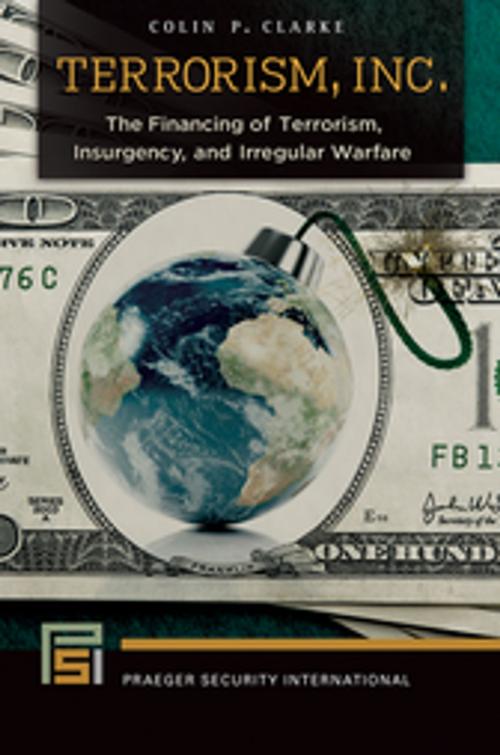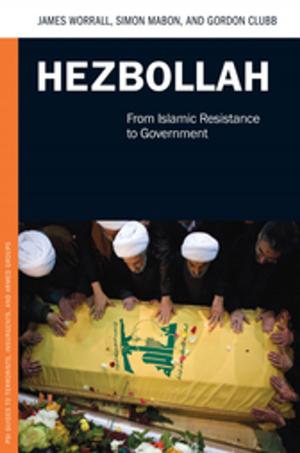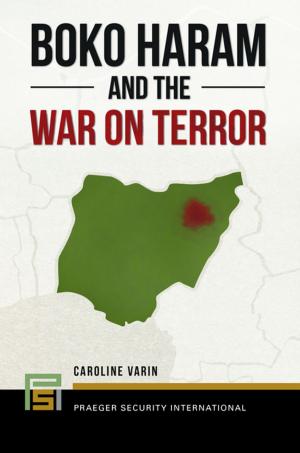Terrorism, Inc.: The Financing of Terrorism, Insurgency, and Irregular Warfare
The Financing of Terrorism, Insurgency, and Irregular Warfare
Nonfiction, Social & Cultural Studies, Political Science| Author: | Colin P. Clarke Ph.D. | ISBN: | 9781440831041 |
| Publisher: | ABC-CLIO | Publication: | June 1, 2015 |
| Imprint: | Praeger | Language: | English |
| Author: | Colin P. Clarke Ph.D. |
| ISBN: | 9781440831041 |
| Publisher: | ABC-CLIO |
| Publication: | June 1, 2015 |
| Imprint: | Praeger |
| Language: | English |
Terrorist financing is an ongoing game of creating, concealing, and surreptitiously utilizing funds. This intriguing book considers every facet of guerrilla funding—from how activities are financed, to what insurgents do with the revenue they generate, to the range of countermeasures in place for deterring their moneymaking activities. Case studies prompt an analysis of past government responses and inform recommendations for countering irregular warfare worldwide.
Author Colin P. Clarke presents the business side of terrorism, taking a look at the cash-producing ventures he labels "gray activities" such as diaspora support, charities, fraudulent businesses, front companies, and money laundering as well as "dark activities" including kidnapping for ransom, robbery, smuggling, trafficking, and extortion. He considers the transnational efforts to stop terrorist activities—from wiretaps and electronic surveillance to financial sanctions and the freezing of funds and accounts—and points to the emergence of interagency task forces for detaining and destroying the operations of major criminal organizations across the globe.
Terrorist financing is an ongoing game of creating, concealing, and surreptitiously utilizing funds. This intriguing book considers every facet of guerrilla funding—from how activities are financed, to what insurgents do with the revenue they generate, to the range of countermeasures in place for deterring their moneymaking activities. Case studies prompt an analysis of past government responses and inform recommendations for countering irregular warfare worldwide.
Author Colin P. Clarke presents the business side of terrorism, taking a look at the cash-producing ventures he labels "gray activities" such as diaspora support, charities, fraudulent businesses, front companies, and money laundering as well as "dark activities" including kidnapping for ransom, robbery, smuggling, trafficking, and extortion. He considers the transnational efforts to stop terrorist activities—from wiretaps and electronic surveillance to financial sanctions and the freezing of funds and accounts—and points to the emergence of interagency task forces for detaining and destroying the operations of major criminal organizations across the globe.

![Cover of the book Encyclopedia of U.S. Military Interventions in Latin America [2 volumes] by Colin P. Clarke Ph.D.](https://www.kuoky.com/images/2013/july/300x300/9781598842609-QDdA_300x.jpg)



![Cover of the book The World of Ancient Rome: A Daily Life Encyclopedia [2 volumes] by Colin P. Clarke Ph.D.](https://www.kuoky.com/images/2015/august/300x300/9781440829086-HaoJ_300x.jpg)




![Cover of the book Vietnam War: A Topical Exploration and Primary Source Collection [2 volumes] by Colin P. Clarke Ph.D.](https://www.kuoky.com/images/2017/november/300x300/9781440850851-w9fG_300x.jpg)




